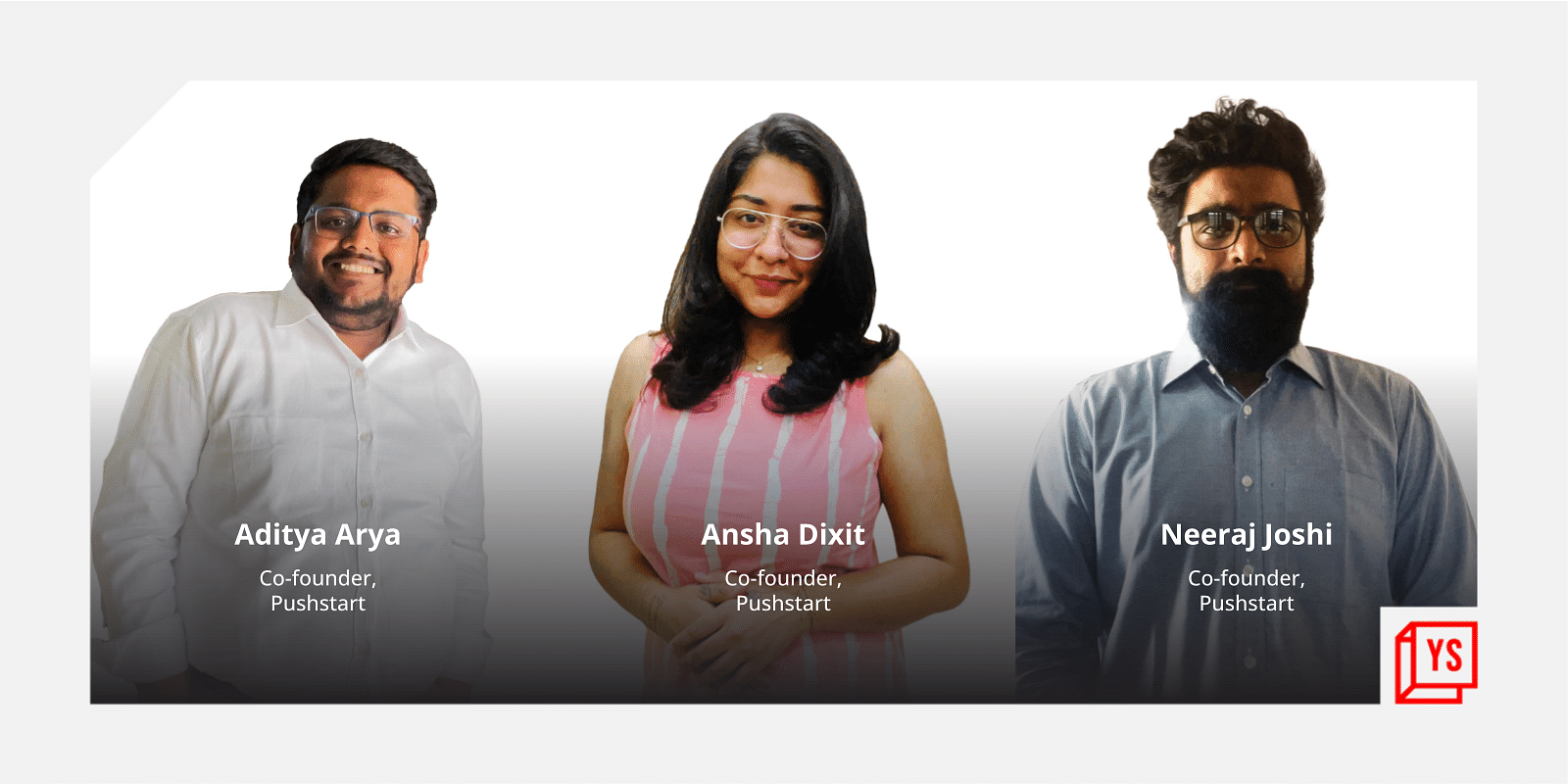The startup culture at really left a mark on Neeraj Joshi when he was working there, back in 2017-18. A veteran daydreamer, as he calls himself, Neeraj was brimming with his own startup ideas and plans, but when he’d try to engage his friends in a conversation around building something, he realised they didn’t reciprocate his enthusiasm, and were instead more concerned about postgraduate studies.
Seeking like-minded people to bounce ideas off, the then 22-year old joined various entrepreneur-focused communities, as well as reached out to people over LinkedIn — to no avail.
The communities he joined were filled with people selling their services and products, and were devoid of any meaningful connections, while the entrepreneurs on LinkedIn didn’t really respond.
Entrepreneurs are an ilk unto their own, and while it may sound like puffery, people in the ecosystem often talk about having this metaphorical entrepreneurial “gene” that makes founders so willing and able to endure a lot more than usual. People who’ve “made it” often profess the importance of “finding your own tribe” of entrepreneurs whose brains are wired to troubleshoot problems creatively — and Neeraj found that lacking in his initial attempts to make contact with such people.
So he decided to go out and create his own community of entrepreneurs where conversations, discussions, problem-solving and just having a “tribe” took precedence over sales connections — and came into being in 2018.
Pushstart is a social networking platform for very early-stage entrepreneurs — even people who are ideating. It connects entrepreneurs with each other so they can form valuable friendships, leverage the community’s brainpower to troubleshoot problems, learn from each other, and basically find others in the same boat as them.
Beyond that, it also aims to provide a networking platform for founders so they can connect for business purposes too — such as finding digital marketing partners, SEO experts, public relations experts, etc.
Neeraj started the platform as a Facebook group, but Pushstart now has its own website. Its communities are accessible on social media platforms such as WhatsApp, and Facebook — only the signup is done via the website, after which admins of the platform add users to various communities depending on their indicated interests.
Pushstart has 30+ communities, and a network of over 25,000 entrepreneurs across India. The startup has impacted nearly five lakh entrepreneurs, and sees 75,000+ conversations per month. The bootstrapped, profitable venture is currently doing around Rs 8 lakh in monthly recurring revenue, aims to hit Rs 20 lakh by the end of the year.
Revenue and business model
Mumbai-based Pushstart does not charge users to join its communities or enrol on the platform. Most of its revenue, instead, comes from two offerings:
- PushPartner: Through this, Pushstart helps startups partner with vendors across 15+ categories such as accounting, design, branding, fundraising, PR, UI/UX etc. These vendors are vetted by Pushstart, and come with good recommendations from community members who’ve used them before. Pushstart charges the vendors on either a per-lead basis, or a commission, depending on the deal size.
“We have guided more than 2,000 startups and directly helped 500 of them. Startup such as Upgrad, Leap Finance, Fitternity, Headout, Motilal Oswal, etc., have hired verified vendors via our network in the last one and a half years of starting this offering,” Neeraj tells YourStory.
The PushPartner offering has helped over 500 member customers connect with 100+ vendors. Its GMV from the business is Rs 10 crore-plus.
- PushIntro: Through this, the platform helps introduce startups to top B2B players in the ecosystem, such as Razorpay, Rebel Foods, Beenext, etc, and helps them get prompter responses than they normally would have received. Pushstart charges startups for every introduction they help make, as well as every demo they’re able to arrange.
Pushstart has helped make over 450+ introductions via this offering — and the conversion rate for startups using those services after the introduction currently stands at 25 percent.
To join the communities on Pushstart, one simply has to fill up a form that captures some details and areas of interest about people interested in signing up. After that, Pushstart’s community managers add people to communities they’ve indicated interest in, and reach out to new users, individually, to see if they’d be interested in joining any other communities.
Neeraj says the company has an engagement rate of 136 percent, perhaps due to being available and present on highly used and accessible platforms such as Facebook and WhatsApp. Not creating a separate, dedicated platform — and yet another web page or app for users to flock to — has helped make Pushstart more active than some other online startup communities.
Founders, including Shashank Kumar of Razorpay, Naiyya Sagi of The Good Glamm group, Ajeet Khurana from Zebpay, and Sanchit Malik of Townscript, are members of the platform and have contributed by responding to queries by users, as well as connecting them with their own industry contacts, Neeraj says.
Others like Zerodha’s Nithin Kamath, Zoho’s Sridhar Vembu, Yulu’s Amit Gupta, CoinDCX’s Sumit Gupta, Dharmil Sheth of Pharmeasy, Vamsi Krishna from Vedantu, and Harsh Shah of Fynd, along with other hundreds of top startup founders have held AMA sessions and attended offline meetups.
In the next six months, Pushstart hopes to launch an offering via which it will help startups connect with investors. By 2024, it wants to launch its own investment fund and support entrepreneurs and startups in its ecosystem.
Neeraj says the company is also going to launch courses to help entrepreneurs get started in their journeys.
Pushstart’s competitors include Startup Grind; the Indian startup fraternity on LinkedIN; Startup Network, India, on LinkedIN; Headstart; as well as several individual startup groups on Facebook, LinkedIn, and WhatsApp, run independently by entrepreneurs, founders, and community managers.
YourStory also has its own YS Club platform where we facilitate connections, as well as serve a healthy dollop of conversations, mentor AMAs, and mentor learning sessions for the startup community.
With India poised to continue seeing the proliferation of startups and entrepreneurs, communities like YS Club and Pushstart are helpful in not only networking, but also finding people undertaking similar journeys. The scope for growth of such communities is immense in a young startup nation like India.










